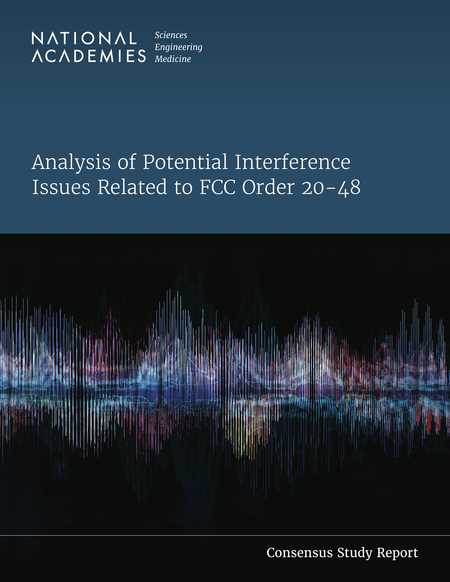Federal Communications Commission (FCC) Mission
The Federal Communications Commission (FCC) is an independent agency of the United States government that is responsible for regulating interstate and international communications by radio, television, wire, satellite, and cable. The mission of the FCC is to ensure that the American people have access to a robust and competitive communication system that promotes innovation, investment, and economic growth.
The FCC’s mission is guided by several key principles:
- Promoting competition: The FCC works to promote competition in the communications industry to ensure that consumers have a choice of high-quality services at affordable prices.
- Protecting consumers: The FCC is committed to protecting consumers from fraud, deception, and unfair practices in the communications marketplace. It enforces regulations to ensure that consumers have access to accurate and reliable information about the services they use.
- Advancing public safety: The FCC plays a crucial role in ensuring the safety and security of the nation’s communications infrastructure. It works to ensure that emergency services have reliable access to communication networks and that the public is protected from harmful interference.
- Promoting innovation and investment: The FCC encourages innovation and investment in the communications industry by fostering a regulatory environment that is conducive to competition and technological advancement. It works to remove barriers to entry and promote the deployment of new technologies.
- Preserving and promoting free speech: The FCC is committed to protecting and promoting the First Amendment rights of individuals and organizations. It works to ensure that the communications industry remains a platform for free expression and diverse viewpoints.
Overall, the mission of the FCC is to serve the public interest by promoting a competitive and innovative communications industry that benefits all Americans. Through its regulatory role, the FCC aims to create a level playing field for communication providers, protect consumers, and foster the growth of new technologies and services.
Overview of FCC’s Regulatory Role

The Federal Communications Commission (FCC) plays a crucial role in regulating various aspects of the telecommunications industry in the United States. As an independent agency of the federal government, the FCC is responsible for overseeing and enforcing regulations that promote competition, innovation, and consumer protection in the communications sector.
Promoting Competition

One of the primary objectives of the FCC is to promote competition in the telecommunications industry. By ensuring that there is a level playing field for all market participants, the FCC aims to foster innovation and provide consumers with a wide range of choices for communication services.
The FCC achieves this by implementing and enforcing regulations that prevent anti-competitive behavior, such as monopolies or unfair business practices. It also reviews mergers and acquisitions in the industry to ensure that they do not result in a significant reduction in competition.
Protecting Consumers
Another important aspect of the FCC’s regulatory role is consumer protection. The FCC works to ensure that consumers have access to reliable, affordable, and high-quality communication services.
The FCC sets standards for service quality and reliability, requiring telecommunications providers to meet certain performance metrics. It also investigates consumer complaints and takes enforcement actions against companies that engage in deceptive or fraudulent practices.
Additionally, the FCC plays a role in promoting universal access to communication services. It administers programs that provide subsidies to low-income households, schools, and libraries to ensure that they have access to affordable broadband internet and other essential communication services.
Conclusion
The FCC’s regulatory role is crucial in maintaining a fair and competitive telecommunications industry in the United States. By promoting competition and protecting consumers, the FCC helps to ensure that Americans have access to reliable and affordable communication services.
Federal Communications Commission (FCC) FQS
The Federal Communications Commission (FCC) is committed to providing quality service to the public. As part of its mission, the FCC has established a set of Federal Quality Standards (FQS) to ensure that its operations and services meet the highest standards of excellence.
The FQS cover a wide range of areas, including customer service, decision-making processes, and regulatory compliance. These standards are designed to promote transparency, accountability, and efficiency in the FCC’s operations.
One of the key components of the FQS is the commitment to timeliness. The FCC strives to provide prompt and efficient service to the public, ensuring that requests and inquiries are addressed in a timely manner. This includes responding to public comments, processing applications, and resolving complaints in a timely fashion.
Another important aspect of the FQS is the commitment to fairness. The FCC is dedicated to treating all individuals and entities fairly and impartially. This means that decisions and actions taken by the FCC are based on objective criteria and are not influenced by personal or political considerations.
The FQS also emphasize the importance of accessibility. The FCC is committed to ensuring that its services and information are accessible to all individuals, including those with disabilities. This includes providing alternative formats for documents, accommodating individuals with disabilities in FCC proceedings, and making its website and online resources accessible to everyone.
In addition, the FQS promote accountability and continuous improvement. The FCC regularly reviews its operations and services to identify areas for improvement and takes steps to address any deficiencies. It also seeks feedback from the public and stakeholders to ensure that its services are meeting their needs and expectations.
Overall, the FQS are a reflection of the FCC’s commitment to providing quality service to the public. By adhering to these standards, the FCC aims to build trust and confidence in its operations and ensure that it is effectively fulfilling its mission to regulate and promote communication services in the United States.
FCC’s Commitment to Quality Service

Ensuring Accessibility

One of the key aspects of the FCC’s commitment to quality service is ensuring accessibility for all individuals. The FCC works to promote universal service, which means that all Americans, regardless of their location or income level, should have access to essential communications services such as broadband internet, telephone, and broadcasting.
Through various programs and initiatives, the FCC aims to bridge the digital divide and ensure that underserved communities have the same opportunities as those in more urban areas. This includes providing funding for broadband infrastructure in rural areas, promoting digital literacy programs, and advocating for affordable internet access for low-income households.
Promoting Competition
Another important aspect of the FCC’s commitment to quality service is promoting competition in the communications industry. By fostering a competitive marketplace, the FCC encourages innovation, lower prices, and better service for consumers.
The FCC regulates mergers and acquisitions in the communications industry to prevent monopolies and promote fair competition. They also enforce rules and regulations to ensure that service providers adhere to fair business practices and provide reliable and transparent service to their customers.
Additionally, the FCC works to protect consumer rights and privacy in the communications sector. They enforce regulations regarding telemarketing, spam emails, and unwanted robocalls to protect consumers from harassment and fraud.
Consumer Complaints and Feedback
The FCC values consumer feedback and actively encourages individuals to voice their concerns and file complaints regarding communications services. They have established a Consumer Complaint Center where individuals can submit complaints online or by phone.
The FCC takes consumer complaints seriously and investigates any violations or issues raised by consumers. They work to resolve complaints in a timely manner and take appropriate actions against service providers who fail to meet the FCC’s standards of quality service.

Emily Bibb simplifies finance through bestselling books and articles, bridging complex concepts for everyday understanding. Engaging audiences via social media, she shares insights for financial success. Active in seminars and philanthropy, Bibb aims to create a more financially informed society, driven by her passion for empowering others.
